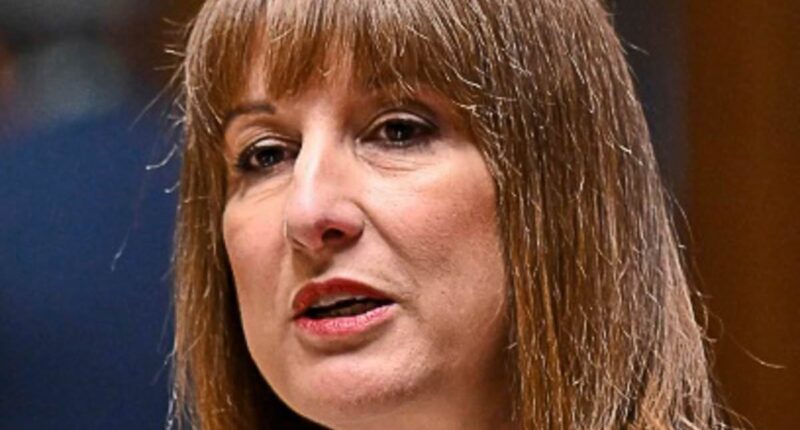At the onset of Covid-19, just over five years ago, Robert Chote, then head of Britain’s Office for Budget Responsibility (OBR), told the Commons that in emergency conditions, such as the pandemic, it was fine for the UK to borrow more.
The tacit understanding was that, as the crisis receded, the Government would hack away at the resulting debt mountain.
It didn’t happen like that. The pandemic was barely over when Russia invaded Ukraine, sending energy costs soaring. Once again the Government intervened with expensive subsidies to stop citizens freezing in their homes.
Across the globe, the red ink spread. National debts soared as a result of accumulated deficits run up when governments spent more than they received in tax and other revenues, year after year.
The outcome has been calamitous. Confidence in Britain was shattered by the Liz Truss mini-Budget of 2022. Bond investors around the world boycotted Britain, the pound tumbled on foreign exchanges and the pensions system came close to implosion.
The UK’s cost of borrowing soared to record levels, the highest among the G7 richest nations.

Under pressure: Chancellor Rachel Reeves
As a witness to the events – as Britain and its Chancellor Kwasi Kwarteng were humiliated at the International Monetary Fund in Washington – I can safely say it should never be allowed to happen again.
However, in the wake of Chancellor Rachel Reeves’ debut budget of October 2024, which raised £40 billion in new taxes, the yields on gilts – UK Government bonds – again rose to worrying levels, reflecting the risk investors see in lending to Britain under Labour.
This means the interest payments made by the UK on its borrowing have rocketed.
Now, in her Spending Review last week, Reeves has set out plans to ‘invest’ £2 trillion over five years in everything from the NHS to research and development. The UK’s ten-year gilt yield at 4.55 per cent is now the highest in the G7.
That is higher than Italy, once seen as a basket case, where bond yields are 3.48 per cent. Greek bond yields have fallen to 3.27 per cent despite the country almost going bankrupt 13 years ago.
British Government debt already stood at a bloated 80 per cent of national wealth ahead of the pandemic. It is now hovering at around a frightening 100 per cent of national output.
This has left the Debt Management Office (DMO), which is responsible for funding the Government’s operations, with a mountain to climb. In the current financial year, it needs to sell more than £300 billion of gilts to refinance maturing debt and meet new borrowing requirements.
Selling gilts has proved tough despite a ready-made market among UK banks, insurers and pension funds, which are required to hold gilts for prudential reasons. In April the DMO temporarily suspended the sale of long-dated bonds, historically a vital part of British borrowing, because of market concerns about heightened risk.
The UK is by no means alone in maxing out its credit card. Public debt across the globe will hit 100 per cent of global output by the end of this decade.
America is among the biggest sinners. Its debt has ballooned since the Second World War to $27 trillion (£20 trillion), about a third of which is held by foreigners. Donald Trump’s ‘big beautiful’ finance bill, which extends tax breaks for better-off Americans, would add $3 trillion to the total.
The US is more able to borrow than other Western democracies, because of the privilege of being the custodian of the dollar, the dominant reserve currency.
But the President’s tariff mayhem and his tax-cutting ambitions have seen the biggest holders of dollar reserves, Japan and China, run down their holdings. Other central banks have done the same.
In times of upheaval such as the current conflagration between Israel and Iran, however, the dollar and America – with its vast oil reserves – are still seen as havens. Britain has none of that privilege.

Another factor contributing to the weakness of British bonds has been the rush by UK corporations to sell off traditional staff pension funds to insurers. On acquiring control, the likes of Legal & General and Aviva offload gilt holdings and replace them with higher yielding corporate bonds, reducing the value of UK debt.
At present the DMO is still able to finance the debt. But Labour’s £2 trillion of investment plans are a big shadow over the market.
The situation is not helped by its political inability to take a meat axe to escalating welfare bills and public sector pay.
The nation now pays twice as much in interest as it spends on its growing defence and national security budget.
That cannot, under any circumstances, be a sensible use of taxpayers’ money, earned by Labour’s beloved working people.
DIY INVESTING PLATFORMS
AJ Bell

AJ Bell
Easy investing and ready-made portfolios
Hargreaves Lansdown

Hargreaves Lansdown
Free fund dealing and investment ideas
interactive investor

interactive investor
Flat-fee investing from £4.99 per month
InvestEngine

InvestEngine
Account and trading fee-free ETF investing
Trading 212
Trading 212
Free share dealing and no account fee
Affiliate links: If you take out a product This is Money may earn a commission. These deals are chosen by our editorial team, as we think they are worth highlighting. This does not affect our editorial independence.
Compare the best investing account for you

















